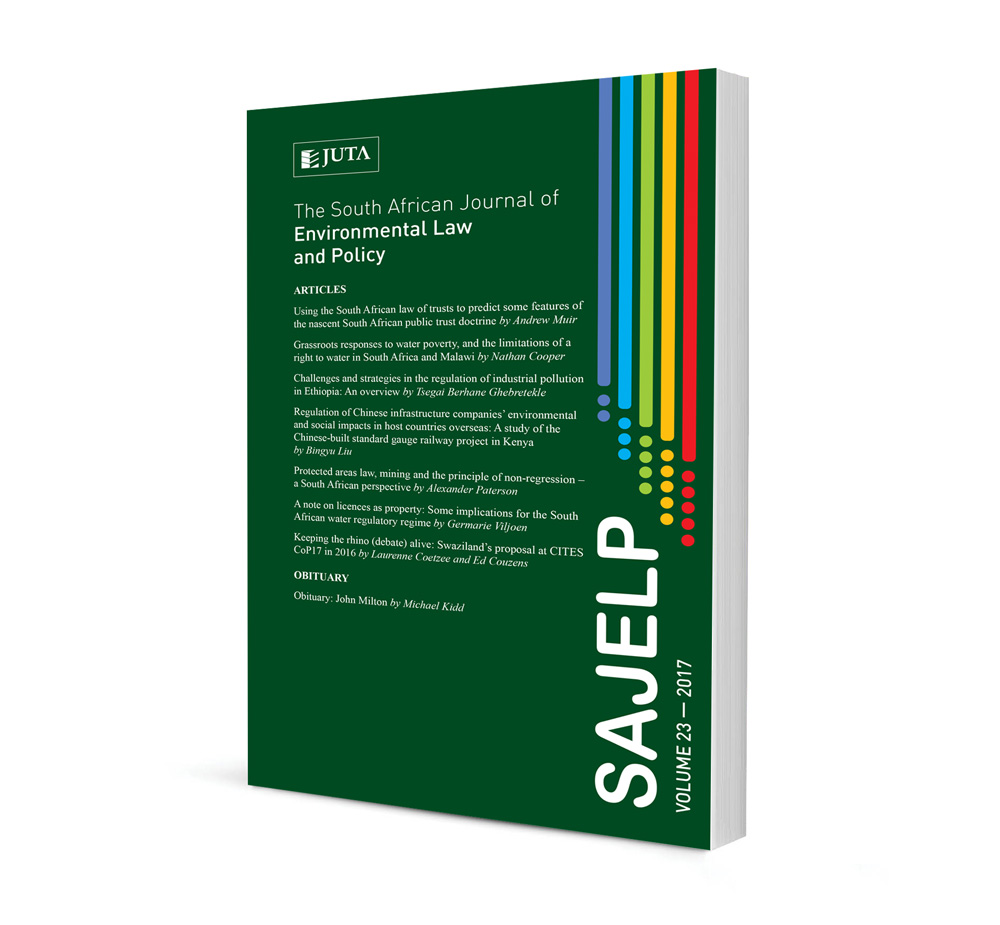
Promoting the Right to Environmental Justice Through the Supreme Court’s Liberalisation of Locus Standi in Nigeria
Authors John Oluwole A Akintayo and David Tarh-Akong Eyongndi
ISSN: 2616-8499
Affiliations:
Source: South African Journal of Environmental Law and Policy 2019, p. 201
Abstract
This note, which uses desk-based research methodology, reviews the Supreme Court’s decision in Centre for Oil Pollution Watch v N.N.P.C. by focusing on the philosophical basis and development of locus standi in Nigeria, its effects on adjudication, and the effect of the judgment in advancing environmental justice and public interest litigation in Nigeria. Locus standi ensures that only a person who has a genuine legal interest can set in motion a judicial process either to protect the interest or seek redress where the interest has been infringed upon. Locus standi protects the courts from being accessed by busybodies or meddlesome interlopers, and it relates to the complainant and not the complaint. This note argues for the promotion of environmental justice through public interest litigation based on the provisions of the Fundamental Rights Enforcement Procedure Rules (FREPR) 2009. Against this backdrop, the note argues that the judgment is a welcome development and urges other public-spirited private stakeholders, particularly in the Niger Delta Region (NDR) where there is brazen environmental degradation resulting from the activities of multinational oil companies, to explore it to forestall environmental degradation from ravaging the region. The decision provides judicial approval of the liberalisation of locus standi by the FREPR 2009.